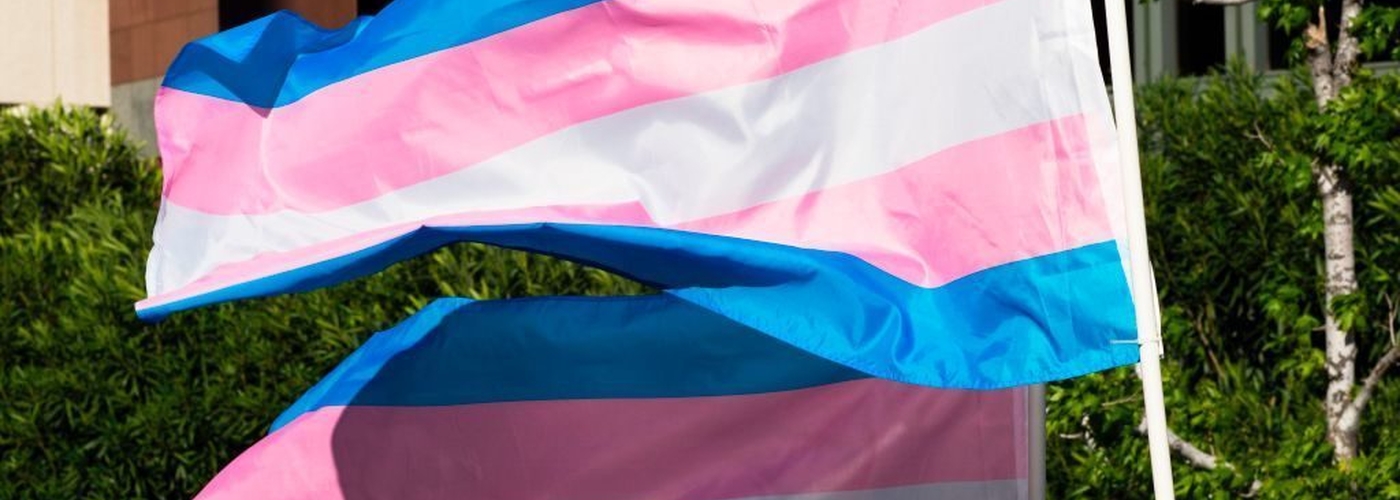Andy Burnham and Lib Dems declare support for amendments to Gender Recognition Act
Controversy over the Gender Recognition Act (GRA) has sparked a flurry of letters from Manchester campaigners this summer, including a missive to Boris Johnson from Manchester-based LBGT Foundation.
Andy Burnham kick-started the storm of correspondence by urging the Government to speed up changes to legislation which will have far-reaching impact on the trans community.
Burnham, along with Sadiq Khan, Steve Rotherham and Dan Jarvis, wrote to Equalities Minister Penny Mordaunt arguing: “GRA reform is a key step in addressing the marginalisation of trans and non-binary communities by allowing them to more easily gain legal recognition of their gender identity.”
What was once called a ‘quietly radical’ proposal has become a lot more noisy
The letter was prompted by delays to reviews to the Gender Recognition Act promised by the Government. The Conservatives had proposed the changes to the Act back in 2017, potentially under the impression that it would be a straightforward endeavour. At the time Theresa May said “We’ve set out plans to reform the Gender Recognition Act, streamlining and demedicalising the process for changing gender, because being trans is not an illness and it shouldn’t be treated as such.”

The law currently requires a lengthy bureaucratic and medical process for trans people to get their identity legally recognised. There is also no legal option to identify as non-binary.
Reforming the Gender Recognition Act would allow trans people to self-determine their gender when applying for a Gender Recognition Certificate. ‘Self-ID’ has become a pivotal focus in the debate over trans rights.
Burnham’s letter was followed by another letter from the LGBT Foundation, which was co-signed by Carl Austin-Behan (former Lord Mayor of Manchester), Jenny-Anne Bishop (Chair of Trans Forum Manchester), Mark Fletcher (Chief Executive of Manchester Pride) and others. The letter addressed new Prime Minister Boris Johnson, reminding him that: “Your guiding principle is ‘who you love, who you are, how you choose to live should not and will not stand in your way’. Unfortunately, the current GRA process stands in the way of many trans and non-binary people being fully accepted in law. The Government estimates only twelve per cent of trans people have secured a Gender Recognition Certificate, despite 92 per cent stating in the National LGBT Survey (2018) they would want one.”
The full letter is available here.
Amazing to see the Trans and Lesbian friends marching together in unity at this years Manchester Pride Parade 🏳️🌈 pic.twitter.com/zY7cuaiJ5A
— Manchester Pride (@ManchesterPride) August 25, 2018
Support for amendments also came from the Manchester Liberal Democrats, with Liberal Democrat Equalities Spokesperson April Preston saying: “The Liberal Democrats were the first party to support trans people changing their legal gender back in 1998, and it was a Lib Dem bill that first introduced the concept of Gender Recognition into Parliament. We are also committed to GRA reform and introducing an X gender on official documents. In Manchester, we were the only party to commit to progressing LGBT+ rights in our local election manifesto.
“We pledged to extend the Council’s Special Leave Policy to include those seeking gender reassignment-related appointments. This means they will be treated in the same way as any other medical appointment and the worker will be given special paid leave instead of unpaid.
“We are proud to be leading the fight for equality both locally and nationally."

Manchester is a famously LGBT+ friendly city and hosts the Sparkle Weekender, the world's largest free-to-attend celebration of gender diversity. However, not everyone is as supportive of the proposed amendments as Burnham and Preston.
Cathy Devine is a Labour Party member in Greater Manchester and an independent researcher who specialises in human rights legislation and the Equality Act in relation to girls’ and women’s rights.
She wrote to Andy Burnham to protest his support for the amendment, writing: “My concern with your letter is that nowhere do you recognise the knock-on effect for girls’ and women’s rights or even indicate that you have consulted with female constituents in Greater Manchester. The optics of four male mayors and the male CEO of the LGBT Foundation discounting any impacts on girls’ and women’s rights is really worrying for Labour. It is clear that you have consulted with the LGBT Foundation but it is unclear whether or not you have consulted with any women’s campaign groups such as Manchester Feminist Network, Woman’s Place UK, Transgender Trend, or Fair Play for Women.”
You can read her full letter here.
Since Johnson came to office, the future of the amendments seem much more uncertain. “I’m hopeful that we will be able to get both the response to the consultation and what we’re planning on doing out there before the summer recess,” Mordaunt told Pink News in early July, but Parliament has since broken for the summer without resolving the issue.
Campaigners on both sides of the debate have stated that the Government was not prepared for the volume of response to consultation, with more than 100,000 public replies and representations from over 140 organisations. The consultation closed in October last year.
What was once called a ‘quietly radical’ proposal has certainly become a lot more noisy.
What is the Gender Recognition Act?
The Gender Recognition Act is an Act of Parliament that was originally passed in 2004. The GRA is the mechanism that allows trans people to apply for a Gender Recognition Certificate (GRC) and change the gender on their birth certificate. 'Trans' is a term used to describe someone whose gender identity does not align or match with the sex and gender role they were assigned at birth.
A trans person is protected from sex discrimination on the basis of their legal sex. This means that a trans woman who does not hold a GRC and is therefore legally male would be treated as male for the purposes of the sex discrimination provisions, and a trans woman with a GRC would be treated as female.
Currently, trans people must prove they have lived in their gender for two years and have a medical diagnosis of gender dysphoria, after which their application for a GRC is approved – or refused – by a panel of people who don’t meet them.
In 2016, the Women and Equalities Committee published a root-and-branch review of the Gender Recognition Act, noting its deficiencies and making recommendations for its review.
















